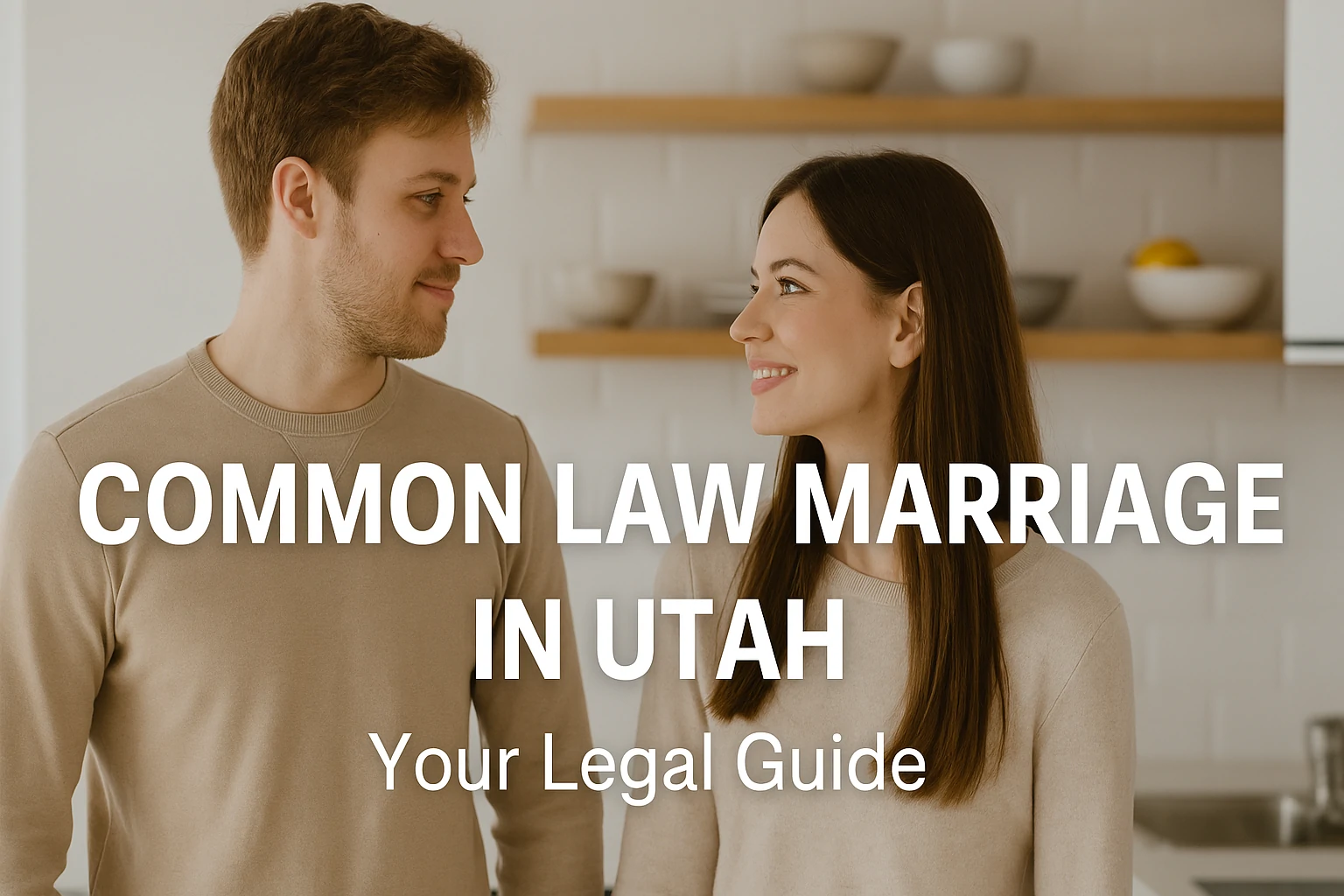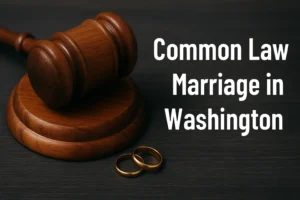Some couples live together for years. They share a home, raise kids, and pay bills. They act like they are married. But they never had a wedding or got a license. In many places, this can create confusion. In Utah, the law has a process for this kind of situation.
Utah does not allow traditional common law marriage. But it does give couples a way to prove they had a valid marriage. This process has rules. It needs clear proof. And it has a strict deadline. People who miss a step often lose their legal rights.
This guide will help you understand how Utah handles this issue. It will show how the law works, who qualifies, and what to expect if you ask a court to approve your relationship. Many people do not know the risks. Some wait too long. Others fail to prepare. Knowing the law now can help you protect your future.
Is Common Law Marriage Legal in Utah?
Utah does not let people become married just because they lived together for many years. But the state does allow a couple to ask the court to recognize their relationship as a legal marriage. The official term is “marriage without a ceremony.”
This type of marriage needs a court order. You must prove the relationship met every legal step. If the court agrees, it will issue a ruling. That ruling makes the marriage valid. It gives the couple the same rights as any other married couple in Utah.
The process does not happen automatically. Living together is not enough. You must show the court that your relationship meets all legal rules. The court must see real proof. Verbal claims or casual living situations will not work.
Related Reading: Common Law Marriage in Michigan – Learn how Michigan handles similar relationships and how the laws differ from Utah.
Requirements the Court Must See
Utah courts do not accept every request. They follow a clear checklist. Each person must meet the basic rules to qualify for marriage in the first place. That means both people must be old enough, mentally able to agree, and not married to someone else.
The court also checks how the couple lived. Did both people agree to be married? Did they live as a married couple? Did they tell others they were married? Did they share bank accounts, pay bills together, or raise a family?
These facts help show if the couple truly acted like spouses. Public behavior matters. Secret relationships do not count. The court wants to see that the couple acted like husband and wife, not just roommates or friends.
If the court sees strong evidence of a committed marriage-like relationship, it may approve the claim. Once approved, the couple gains full marital rights under Utah law.
The One-Year Filing Deadline
This is one of the most important parts. You only have one year to file a claim. That one-year window starts when the couple separates or when one person dies. Once that time passes, the court cannot help you. Your chance ends.
Many people do not know about this rule. They wait too long. They speak up only when they want to claim property or file for benefits. At that point, it may be too late. That is why quick action is so important.
If your partner passes away or leaves, speak to a lawyer right away. Do not wait to see what happens. That delay could erase your legal rights forever.
Steps to File a Court Petition
To begin, you must file a case in district court. This is a legal petition that asks the court to rule that your relationship was a valid marriage. You must include facts, proof, and supporting documents.
You may need witness statements, photos, letters, bills, or messages that show both people agreed to be married. You may also need to explain how the relationship began, how long it lasted, and how others saw you as a couple.
A judge will review the case. The court may hold a hearing. Each person can speak. The judge can ask questions. You must be honest, clear, and ready with facts. The court wants to see more than words. It wants real proof.
If the judge rules in your favor, the court will issue an order. That order gives you full legal status as a married person. You can use that document in any legal matter, such as inheritance, taxes, or divorce.
Why This Matters So Much
This legal process affects your future in many ways. Once the court approves your relationship, you gain all the rights of a married couple. That includes the right to:
- Claim property
- Ask for alimony
- Inherit assets
- Make health decisions for your partner
- Get benefits from work or insurance
If the court does not approve the claim, you may get nothing. You could lose your home, your money, or your partner’s assets. You may not have a legal way to ask for support or take care of your children’s rights.
People who ignore this issue often face major losses later. If you live with someone and believe you have a valid marriage, take action now. Waiting can cost you everything.
Real Risks in Not Filing
Many couples think they do not need legal proof. They believe love is enough. They trust each other and expect things to work out. But problems often start when someone gets sick, dies, or leaves.
Without a court ruling, you may not count as a spouse. That means:
- You cannot file for divorce
- You cannot claim any property
- You cannot make medical choices
- You cannot claim retirement or death benefits
If your partner’s family does not accept you, they can block your access to the home or money. You may lose your place in the house or your voice in legal matters.
These risks are real. The law does not protect couples who fail to act. That is why this process matters.
What You Should Do Now
If you believe your relationship counts as a marriage, take the next step. Gather your proof. Write down your story. Save joint bills, rental agreements, texts, photos, or letters. Ask people who knew you as a couple to share their view.
Then talk to a lawyer. A legal expert can guide you. They can help you file your case, build your proof, and meet the deadline. Even if your partner has passed, it may not be too late, if you act fast.
If you are still in the relationship, consider a legal marriage. A marriage license offers stronger, faster protection. You will not need to go through the court process later.
If you do not want formal marriage, make sure you take steps to protect yourself. Keep records. Talk to your partner about your rights. And if things ever go wrong, act quickly. You only get one chance to make a legal claim.
Utah Common Law Myths
Myth 1: Living together for 7 years creates a marriage.
False. Time alone does not prove marriage. Utah looks at agreement, conduct, and intent.
Myth 2: If one partner says they were married, the court must accept it.
False. Both must agree. Courts want shared actions, not just one person’s word.
Myth 3: You can wait as long as you want to claim the marriage.
False. You must file within one year of separation or death.
Myth 4: Common law marriage works the same in every state.
False. Every state has its own rules. Utah allows recognition under court order. Some states ban it.
Also Read: Common Law Marriage in Arizona – See how Arizona law treats unmarried couples and what legal steps apply there.
What to Remember About Utah Law
Common law marriage in Utah is not simple. The state does not allow it in the usual way. But it does allow couples to prove their marriage through court. This gives real protection to people who live together as spouses but skipped the wedding license.
The process is not automatic. It needs strong proof, fast action, and legal help. The one-year time limit makes it urgent. The court will not save you if you wait too long.
If you live with someone and share your life as a couple, you need to understand the law. You need to protect your future. Do not rely on hope. Do not expect others to respect your word alone.
Utah courts will honor your marriage, if you follow the rules and act on time.




